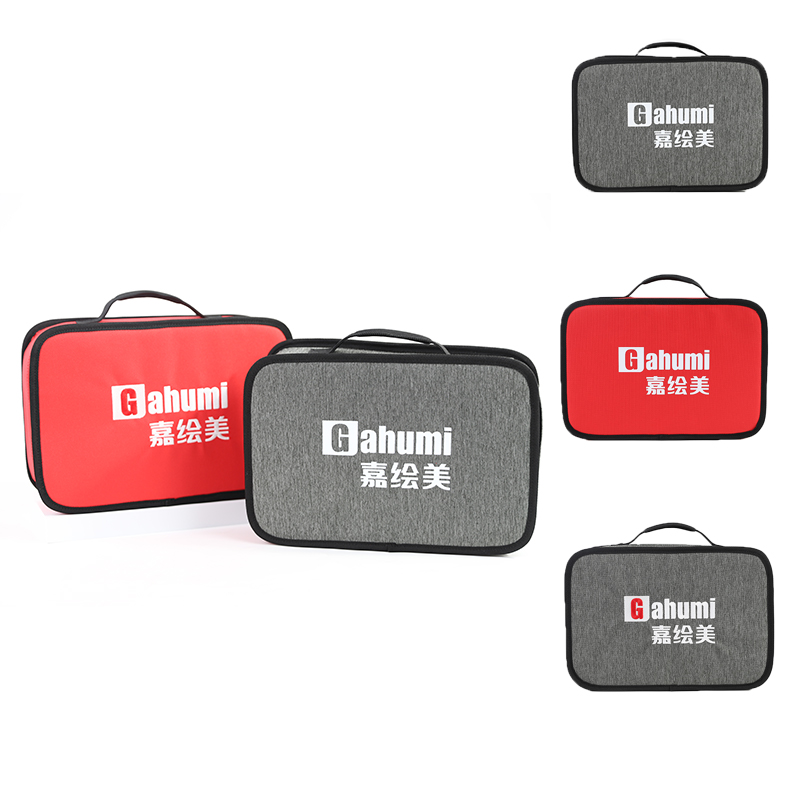中文
Русский
español
The Rise of Eco-Friendly Tote Bags - Sustainable Practices in Manufacturing
Sep 29, 2024
Views:
89
|
Gahumi
As the world increasingly embraces sustainability, eco-friendly tote bags have gained popularity as an alternative to single-use plastic bags. These bags not only provide a practical solution for carrying items but also contribute to reducing environmental impact. This article explores the rise of eco-friendly tote bags and the sustainable practices adopted in their manufacturing. We will delve into the importance of sustainable materials, manufacturing processes, and the role of tote bag manufacturers in promoting environmental responsibility. By understanding the shift towards eco-friendly tote bags, individuals and businesses can make informed choices that align with their commitment to sustainability.
1. Sustainable Materials for Tote Bags
Eco-friendly tote bags are made from sustainable materials that have a lower environmental impact compared to traditional materials. Common sustainable materials used in tote bag manufacturing include organic cotton, recycled fabrics, hemp, jute, and canvas. These materials are renewable, biodegradable, and often require fewer resources to produce. By opting for sustainable materials, manufacturers reduce their reliance on non-renewable resources and minimize the carbon footprint associated with tote bag production.
2. Manufacturing Processes and Practices
Sustainable tote bag manufacturing involves adopting eco-friendly practices throughout the production process. This includes implementing energy-efficient manufacturing techniques, reducing water consumption, and minimizing waste generation. Manufacturers can also incorporate eco-friendly printing methods, such as water-based or vegetable-based inks, which are free from harmful chemicals. By prioritizing sustainable manufacturing processes, tote bag manufacturers can minimize their environmental impact and contribute to a more sustainable future.
3. Collaboration with Tote Bag Manufacturers
Collaborating with tote bag manufacturers that prioritize sustainability is essential in promoting eco-friendly tote bags. Manufacturers that offer OEM services can work closely with individuals and businesses to create custom tote bags using sustainable materials and manufacturing practices. Collaborating with these manufacturers allows for the design and production of unique, eco-friendly tote bags that align with the specific needs and values of customers. By partnering with manufacturers committed to sustainability, individuals and businesses can ensure that their tote bags are not only visually appealing but also environmentally responsible.
4. Promoting Reusability and Waste Reduction
One of the key benefits of eco-friendly tote bags is their reusability, which helps reduce waste generated from single-use plastic bags. By encouraging the use of reusable tote bags, manufacturers and consumers contribute to waste reduction efforts. Tote bag manufacturers can promote reusability by creating durable and long-lasting bags that can withstand repeated use. Additionally, manufacturers can educate customers about the environmental benefits of using reusable tote bags, encouraging them to make sustainable choices in their daily lives.
5. Branding and Design Considerations
Eco-friendly tote bags offer branding and design opportunities that align with sustainability. Customization options allow businesses and individuals to incorporate their logos, slogans, or artwork on the tote bags, promoting their brand identity while also spreading awareness about sustainability. Design considerations can include incorporating eco-friendly motifs, using natural dyes, or opting for minimalist designs that emphasize the environmental message. By considering sustainability in the branding and design process, manufacturers and customers can create tote bags that not only look appealing but also convey a powerful message about environmental responsibility.
6. Consumer Awareness and Education
Promoting eco-friendly tote bags requires raising consumer awareness and educating them about the environmental impact of single-use plastic bags. Manufacturers can play a crucial role in this by providing information about the benefits of reusable tote bags and the importance of sustainable materials and manufacturing practices. This can be done through product labeling, marketing campaigns, or collaborations with environmental organizations. By fostering consumer awareness and education, manufacturers contribute to a shift in consumer behavior, encouraging them to make sustainable choices and opt for eco-friendly tote bags.
The rise of eco-friendly tote bags reflects a growing commitment to sustainability and environmental responsibility. By utilizing sustainable materials, adopting eco-friendly manufacturing practices, and promoting reusability, tote bag manufacturers can reduce their environmental impact and contribute to waste reduction efforts. Collaboration between manufacturers and customers allows for the creation of custom eco-friendly tote bags that align with specific needs and values. By incorporating sustainability into branding and design considerations and raising consumer awareness and education, manufacturers can further promote the use of eco-friendly tote bags. Together, these efforts contribute to a more sustainable future, where reusable tote bags become the norm, replacing single-use plastic bags and reducing environmental harm.
1. Sustainable Materials for Tote Bags
Eco-friendly tote bags are made from sustainable materials that have a lower environmental impact compared to traditional materials. Common sustainable materials used in tote bag manufacturing include organic cotton, recycled fabrics, hemp, jute, and canvas. These materials are renewable, biodegradable, and often require fewer resources to produce. By opting for sustainable materials, manufacturers reduce their reliance on non-renewable resources and minimize the carbon footprint associated with tote bag production.
2. Manufacturing Processes and Practices
Sustainable tote bag manufacturing involves adopting eco-friendly practices throughout the production process. This includes implementing energy-efficient manufacturing techniques, reducing water consumption, and minimizing waste generation. Manufacturers can also incorporate eco-friendly printing methods, such as water-based or vegetable-based inks, which are free from harmful chemicals. By prioritizing sustainable manufacturing processes, tote bag manufacturers can minimize their environmental impact and contribute to a more sustainable future.
3. Collaboration with Tote Bag Manufacturers
Collaborating with tote bag manufacturers that prioritize sustainability is essential in promoting eco-friendly tote bags. Manufacturers that offer OEM services can work closely with individuals and businesses to create custom tote bags using sustainable materials and manufacturing practices. Collaborating with these manufacturers allows for the design and production of unique, eco-friendly tote bags that align with the specific needs and values of customers. By partnering with manufacturers committed to sustainability, individuals and businesses can ensure that their tote bags are not only visually appealing but also environmentally responsible.
4. Promoting Reusability and Waste Reduction
One of the key benefits of eco-friendly tote bags is their reusability, which helps reduce waste generated from single-use plastic bags. By encouraging the use of reusable tote bags, manufacturers and consumers contribute to waste reduction efforts. Tote bag manufacturers can promote reusability by creating durable and long-lasting bags that can withstand repeated use. Additionally, manufacturers can educate customers about the environmental benefits of using reusable tote bags, encouraging them to make sustainable choices in their daily lives.
5. Branding and Design Considerations
Eco-friendly tote bags offer branding and design opportunities that align with sustainability. Customization options allow businesses and individuals to incorporate their logos, slogans, or artwork on the tote bags, promoting their brand identity while also spreading awareness about sustainability. Design considerations can include incorporating eco-friendly motifs, using natural dyes, or opting for minimalist designs that emphasize the environmental message. By considering sustainability in the branding and design process, manufacturers and customers can create tote bags that not only look appealing but also convey a powerful message about environmental responsibility.
6. Consumer Awareness and Education
Promoting eco-friendly tote bags requires raising consumer awareness and educating them about the environmental impact of single-use plastic bags. Manufacturers can play a crucial role in this by providing information about the benefits of reusable tote bags and the importance of sustainable materials and manufacturing practices. This can be done through product labeling, marketing campaigns, or collaborations with environmental organizations. By fostering consumer awareness and education, manufacturers contribute to a shift in consumer behavior, encouraging them to make sustainable choices and opt for eco-friendly tote bags.
The rise of eco-friendly tote bags reflects a growing commitment to sustainability and environmental responsibility. By utilizing sustainable materials, adopting eco-friendly manufacturing practices, and promoting reusability, tote bag manufacturers can reduce their environmental impact and contribute to waste reduction efforts. Collaboration between manufacturers and customers allows for the creation of custom eco-friendly tote bags that align with specific needs and values. By incorporating sustainability into branding and design considerations and raising consumer awareness and education, manufacturers can further promote the use of eco-friendly tote bags. Together, these efforts contribute to a more sustainable future, where reusable tote bags become the norm, replacing single-use plastic bags and reducing environmental harm.
share
Contact Us
Your email address will not be published. Required fields are marked*
Related Products








 Guangdong Gahumi Textile Co., Ltd is specialized in manufacturing flag, T-shirts, Hoodie, Poloshirts, canvas bag, Cap and towel. Welcome to drop us a visit for guiding and negotiating with win-win developing business.
Guangdong Gahumi Textile Co., Ltd is specialized in manufacturing flag, T-shirts, Hoodie, Poloshirts, canvas bag, Cap and towel. Welcome to drop us a visit for guiding and negotiating with win-win developing business.


© 2024 广东嘉绘美纺织品有限公司 Guangdong Gahumi Textile Co., Ltd | Powered by
Matchpages
Privacy Policy
Sitemap
Contact Us



